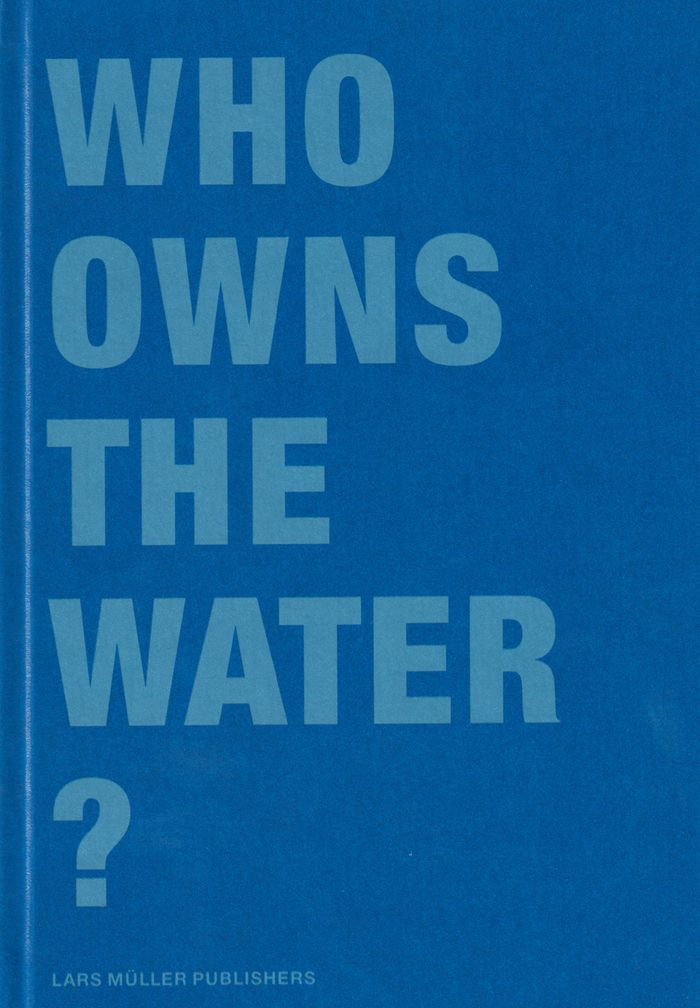Who owns the water?
$60.00
(disponible sur commande)
Résumé:
Industrialization and population growth have brought about a global water crisis. Nature can no longer compensate the exploitation of our freshwater and our oceans. One billion people have no reliable access to clean drinking water; two billion live in precarious hygienic conditions. Famine, poverty, epidemics, and infant mortality are closely linked with the water(...)
Who owns the water?
Actions:
Prix:
$60.00
(disponible sur commande)
Résumé:
Industrialization and population growth have brought about a global water crisis. Nature can no longer compensate the exploitation of our freshwater and our oceans. One billion people have no reliable access to clean drinking water; two billion live in precarious hygienic conditions. Famine, poverty, epidemics, and infant mortality are closely linked with the water crisis. Social, ecological, political, and economic conflicts obstruct efforts to resolve the global water crisis. Water is an instrument of power. The key question reads: Is water a commodity or is free access to water an inalienable human right? By approaching water from a phenomenological perspective, Who owns the Water? seeks to persuade the reader that an element that is constantly flowing and changing defies all claims to own it, be they political or economic, and is instead the responsibility of the entire international community.
Architecture écologique
livres
Helvetica forever
$49.00
(disponible sur commande)
Résumé:
A follow-up to Lars Müller's 2004 Homage to a typeface, Helvetica forever celebrates the fiftieth anniversary of this popular font. Designed in 1957, Helvetica is an icon of Swiss graphic design, which was a model of sober, functional communication throughout the world in the 1950s and 60s. The balanced and neutral appearance of Helvetica forgoes a high degree of(...)
Helvetica forever
Actions:
Prix:
$49.00
(disponible sur commande)
Résumé:
A follow-up to Lars Müller's 2004 Homage to a typeface, Helvetica forever celebrates the fiftieth anniversary of this popular font. Designed in 1957, Helvetica is an icon of Swiss graphic design, which was a model of sober, functional communication throughout the world in the 1950s and 60s. The balanced and neutral appearance of Helvetica forgoes a high degree of expressivity a quality for which it is both criticized and admired. This polarization has helped to gain it unparalleled notoriety. Helvetica is far and away the most widely used of all typefaces; according to a survey by the Berliner Fontshop-Archiv, it tops the list of the hundred best fonts of all time. This publication retraces Helveticas fifty-year history, compares it to the well-known sans serif fonts of the twentieth century, and examines the phenomenon of its unparalleled spread. Numerous illustrations show a multitude of ways the font has been used in five decades from a wide variety of fields from signal design to party flyers.
livres
octobre 2007
